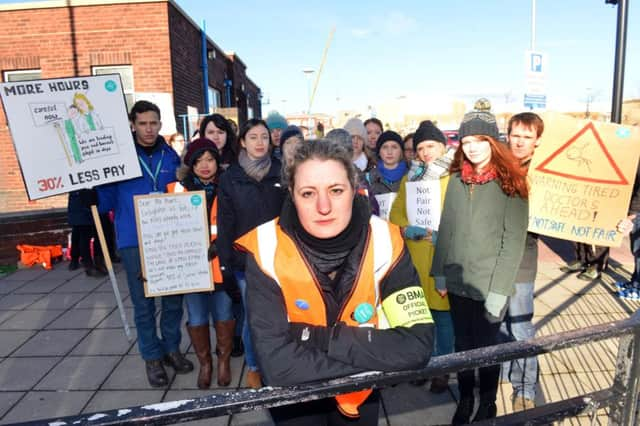Junior doctors take to the picket line


City medics took part in the national day of action in the continued dispute with the Government over pay and contract proposals.
The doctors were providing emergency cover only during the 24-hour walkout, which got under way at 8am yesterday. Bosses at Sunderland Royal Hospital said they didn’t have to cancel any operations, but 50 outpatient appointments had to be rescheduled.
Advertisement
Hide AdAdvertisement
Hide AdAlex Thompson, a junior doctor at the Royal and a representative for the British Medical Association (BMA), said: “We had an overwhelmingly positive response from people, it was really good.
“We had a lot of people coming up to chat and patients were coming to talk to us when they left the hospital.
“There was also a lot of beeping of support from passing cars. People in Sunderland are very supportive.
“I think people understand that no doctors want to strike.”
The major sticking point in the dispute is over weekend pay and whether Saturday should be largely classed as a normal working day.
Advertisement
Hide AdAdvertisement
Hide AdCurrently, 7pm to 7am Monday to Friday and the whole of Saturday and Sunday attract a premium rate of pay for junior doctors.
Health Secretary Jeremy Hunt says the contract changes are needed to create more seven-days services, but the BMA warns safeguards to keep a lid on excessive hours are being weakened.
Nationally thousands of junior doctors attended more than 160 picket lines across England.
Dr Johann Malawana, BMA junior doctor committee chairman, said the day of action was a resounding rejection of the Government’s threat to impose an unfair contract.
Advertisement
Hide AdAdvertisement
Hide AdHe said: “We deeply regret the disruption caused to patients, but this is a fight for the long-term delivery of high quality patient care, for junior doctors’ working lives and for ability of the NHS to rise to the enormous challenges facing it.
“Junior doctors already work around the clock, seven days a week and they do so under their existing contract.
“If the Government want more seven-day services then, quite simply, they need more doctors, nurses and diagnostic staff, and the extra investment needed to deliver it.”